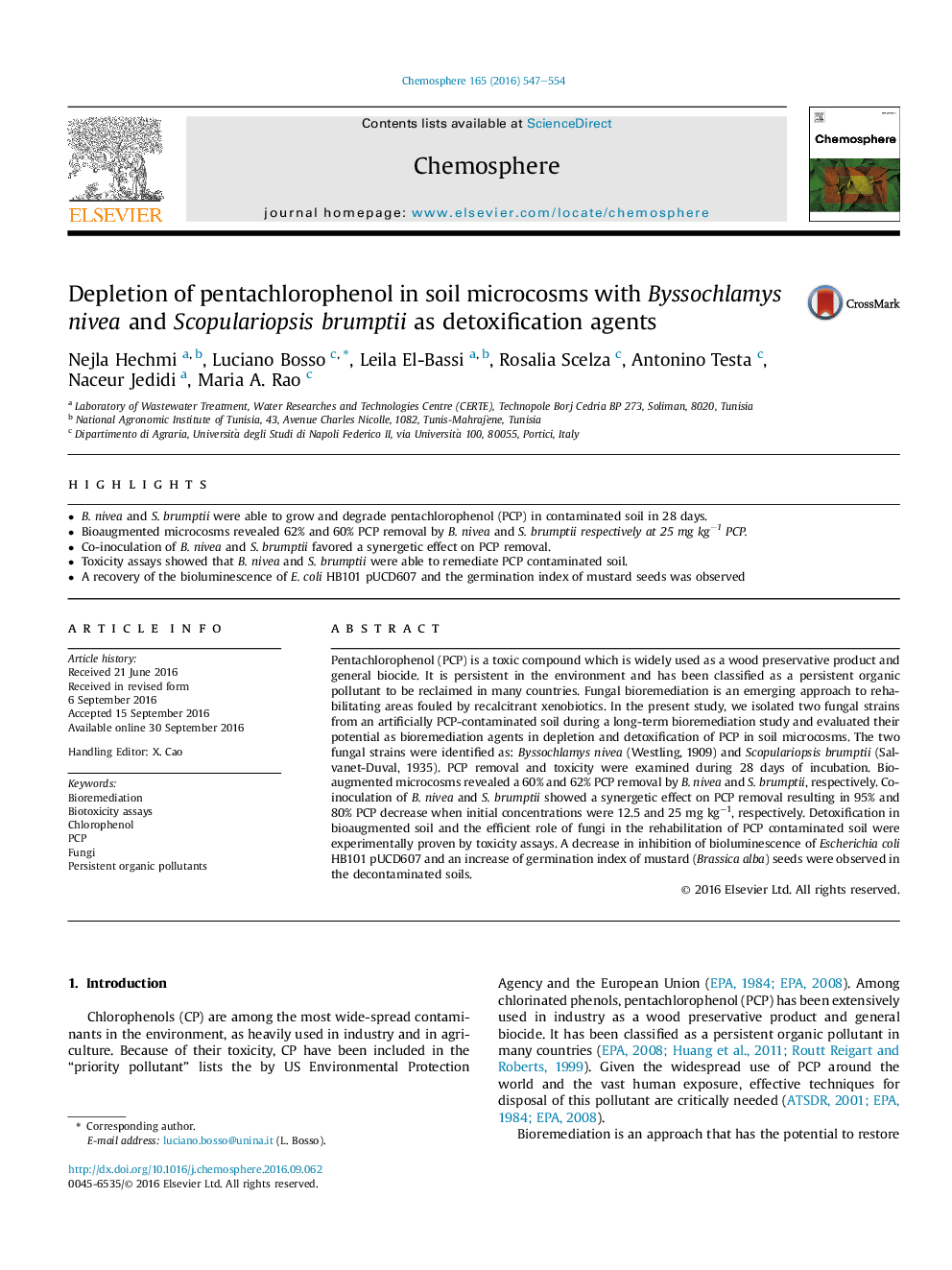| کد مقاله | کد نشریه | سال انتشار | مقاله انگلیسی | نسخه تمام متن |
|---|---|---|---|---|
| 4407349 | 1618806 | 2016 | 8 صفحه PDF | دانلود رایگان |

• B. nivea and S. brumptii were able to grow and degrade pentachlorophenol (PCP) in contaminated soil in 28 days.
• Bioaugmented microcosms revealed 62% and 60% PCP removal by B. nivea and S. brumptii respectively at 25 mg kg−1 PCP.
• Co-inoculation of B. nivea and S. brumptii favored a synergetic effect on PCP removal.
• Toxicity assays showed that B. nivea and S. brumptii were able to remediate PCP contaminated soil.
• A recovery of the bioluminescence of E. coli HB101 pUCD607 and the germination index of mustard seeds was observed
Pentachlorophenol (PCP) is a toxic compound which is widely used as a wood preservative product and general biocide. It is persistent in the environment and has been classified as a persistent organic pollutant to be reclaimed in many countries. Fungal bioremediation is an emerging approach to rehabilitating areas fouled by recalcitrant xenobiotics. In the present study, we isolated two fungal strains from an artificially PCP-contaminated soil during a long-term bioremediation study and evaluated their potential as bioremediation agents in depletion and detoxification of PCP in soil microcosms. The two fungal strains were identified as: Byssochlamys nivea (Westling, 1909) and Scopulariopsis brumptii (Salvanet-Duval, 1935). PCP removal and toxicity were examined during 28 days of incubation. Bioaugmented microcosms revealed a 60% and 62% PCP removal by B. nivea and S. brumptii, respectively. Co-inoculation of B. nivea and S. brumptii showed a synergetic effect on PCP removal resulting in 95% and 80% PCP decrease when initial concentrations were 12.5 and 25 mg kg−1, respectively. Detoxification in bioaugmented soil and the efficient role of fungi in the rehabilitation of PCP contaminated soil were experimentally proven by toxicity assays. A decrease in inhibition of bioluminescence of Escherichia coli HB101 pUCD607 and an increase of germination index of mustard (Brassica alba) seeds were observed in the decontaminated soils.
Journal: Chemosphere - Volume 165, December 2016, Pages 547–554